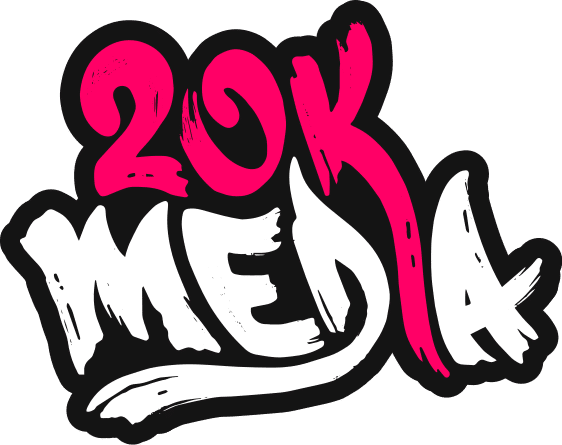Welcome to the essential guide for small businesses looking to boost their success through social media marketing. Having a strong presence on social platforms is crucial for businesses of all sizes, however, for small business owners, creating and implementing an effective social media strategy can be a challenge. That’s why we’ve put together this guide to help you navigate the world of social media marketing and achieve your business goals.
Grasping the Influence of Social Media Advertising
Social media has become an integral part of our daily lives, with billions of people around the world using social media platforms to connect, share, and discover new things. As a small business owner, tapping into this vast audience can open up a world of opportunities for your brand. By showing your business on social media, you can build an online presence, engage with your target audience, and promote your products or services.
When it comes to choosing the right social media platform for your business, it’s important to consider your target audience and the nature of your products or services. Each social media platform has its own unique user base and features, so you need to identify which platform(s) will best serve your business goals. Whether it’s Facebook, Instagram, Twitter, LinkedIn, or a combination of platforms, the key is to use social media strategically to maximize your reach and engagement.
Developing a Solid Social Media Strategy
Developing a prosperous social media marketing strategy requires meticulous preparation and implementation. It’s not enough to simply have a social media presence; you need to have a clear plan in place to achieve your business objectives. Begin by establishing your desired outcomes and targets. What are your aspirations for your social media endeavors? Are you aiming to enhance recognition of your brand, generate more traffic to your website, acquire leads, or escalate sales?
Once you’ve defined your goals, it’s time to decide on the social media channels you will use to reach your target audience. Each channel has its own strengths and limitations, so choose the ones that align with your business objectives and future social content. Remember, it’s better to focus on a few platforms and do them well than to spread yourself too thin across multiple platforms.
Next, develop a content strategy that aligns with your business goals and target audience. The social media content you share should captivate, educate, and be suitable for your audience. It’s important to strike the right balance between promoting your products or services and providing valuable content to your audience. Remember, people use social media to connect and engage, not to be sold to.
Implementing Effective Social Media Management
Managing your social media presence can be a time-consuming task, especially for small business owners who have multiple responsibilities. That’s why it’s important to utilize social media marketing tools to streamline your efforts and save time. These tools can help you schedule posts, monitor engagement, track analytics, and more.
Additionally, it’s important to regularly monitor and analyze your social media performance to ensure that your strategies are effective. Look at metrics such as follower growth, engagement rate, website clicks, and conversions to gauge the success of your social media efforts. Utilize these observations to enhance your strategy and establish decisions based on data.
Discovering the Benefits of Social Media Advertising
While organic reach on social channels is valuable, investing in social media advertising can take your small business to the next level. Social media advertising allows you to target specific audiences, increase brand visibility, and drive more traffic to your website or landing pages. Whether it’s running targeted ads on Facebook or promoting your posts on Instagram, social media advertising can be a powerful tool for achieving your business objectives.
When creating social media ads, it’s important to understand your target audience and tailor your messaging accordingly. Use visually appealing images or videos, compelling copy, and a strong call-to-action to capture the attention of your audience and encourage them to take action.
Conclusion
In conclusion, social media marketing has become an essential tool for small businesses looking to achieve success in today’s digital landscape. By leveraging the power of social media platforms, small business owners can reach a wider audience, drive engagement, and ultimately grow their businesses. Remember to develop a solid social media strategy, utilize social media management tools, and consider social media advertising to maximize your results. With the right approach, social media can be a game-changer for your small business Overall, social media marketing has transformed the way small businesses operate by providing an efficient and cost-effective way to connect with customers and promote their products or services. By taking advantage of social media platforms such as Facebook, Instagram, Twitter, and LinkedIn, small business owners can create brand awareness, engage with their target audience, and drive traffic to their websites.
One of the major benefits of social media network is its ability to reach a wide audience. With billions of people actively using various popular social media platforms, small businesses on social media can tap into this vast market and connect with potential customers. This allows them to expand their customer base and increase their sales potential.
In addition, social media marketing allows small businesses to engage with their customers on a more personal level. By responding to comments, messages, and reviews, you can grow your business and build trust and loyalty with your audience. This engagement not only helps in retaining existing customers but also attracts new social media users through word-of-mouth recommendations.
Another advantage of social media marketing is that it provides valuable insights and data about customer behavior. By analyzing metrics like likes, comments, and shares, small businesses can understand which content resonates with their audience, how to improve their marketing strategies, and make data-driven decisions. This data is crucial for refining social media campaigns and ensuring a higher return on investment.
To effectively leverage social media marketing, small businesses need to develop a well-rounded strategy. This entails identifying their target audience, setting clear objectives, creating high-quality content, and regularly analyzing results to refine and optimize their campaigns.
Furthermore, social media management tools can greatly streamline the process of creating, scheduling, and tracking social media content. These tools allow businesses to manage multiple social media accounts, automate posting schedules, and monitor engagement in one centralized platform. This not only saves time but also ensures consistent and cohesive branding across different platforms.
Lastly, a tip for small businesses is that they should consider using social media advertising to maximize the reach and impact of their campaigns. Platforms like Facebook Ads, Instagram Ads, and LinkedIn Ads offer targeted advertising options, allowing businesses to reach specific demographics, interests, or geographical locations. This enables small businesses to tailor their messages to their ideal customers and increase their chances of conversion.
In conclusion, small businesses cannot afford to ignore the power of online marketing. With its ability to reach a wide audience, engage with customers on a personal level, provide valuable data insights, and enhance overall marketing strategies, effective social media marketing has become an essential tool for success. By developing a solid social media strategy, utilizing social media management tools, and considering social media advertising, small businesses can truly harness the potential of social media and achieve significant growth.
Frequently Asked Questions
What is the meaning of social media marketing?
Social media marketing is the process of using social media platforms to promote a business, build brand awareness, generate website traffic, and engage with customers and prospects. It involves creating and sharing content on social media channels to reach and connect with your target audience.
Why is social media advertising crucial for small enterprises?
Social media marketing is important for small businesses because it provides an affordable way to reach a large audience, build brand awareness, and drive traffic to your website. It allows small businesses to compete with larger companies and engage with customers on a personal level.
What are the best social media platforms for small businesses?
The best social media platforms for small businesses depend on your industry and target audience. However, some popular options include Facebook, Instagram, Twitter, LinkedIn, and Pinterest. Selecting platforms that are in line with your business objectives and where your target audience is most engaged is crucial.
What´s the best way I can use social media for my small enterprise?
To use social media for your small business, start by creating social media accounts on platforms that are relevant to your business. Then, develop a social media strategy, create compelling content, engage with your audience, and track your results. Use social media to build brand awareness, drive website traffic, and generate leads for your business.
What are some suggestions for creating a successful social media marketing strategy?
Some tips for creating a successful social media marketing strategy include defining your goals, identifying your target audience, researching your competitors, creating a content calendar, engaging with your audience, and tracking your results. It’s also important to stay up to date with the latest social media trends and best practices.
Which resources can small enterprises use for social media marketing?
Small businesses have a range of options when it comes to using tools for social media marketing. Some popular options include Hootsuite, Buffer, Sprout Social, Canva, and Google Analytics. These tools can help you schedule and manage your social media posts, create engaging visuals, analyze your social media performance, and more.
What are the ways in which social media marketing can contribute to the growth of my small business?
Social media marketing can help grow your small business by increasing your brand visibility, driving website traffic, generating leads, and building customer loyalty. It allows you to reach a larger audience and engage with them on a regular basis, which can lead to increased sales and business growth.
What should be included in a social media marketing plan for small businesses?
A social media marketing plan for small businesses should include your business goals, target audience, content strategy, posting schedule, engagement tactics, and tracking methods. It should also outline the platforms you will be using, the type of content you will be creating, and the metrics you will be measuring to evaluate your success.
How can I create engaging social media posts for my small business?
To create engaging social media posts for your small business, make sure to use compelling visuals, write catchy captions, ask questions, share valuable content, and encourage user-generated content. It’s also important to respond to comments and messages promptly and to stay consistent with your branding and messaging.
How can I track social media performance for my small business?
You can track social media performance for your small business by using social media analytics tools provided by the platforms themselves, such as Facebook Insights and Twitter Analytics. You can also use third-party analytics tools like Google Analytics or social media management tools which provide in-depth insights into your social media performance.






